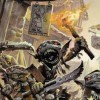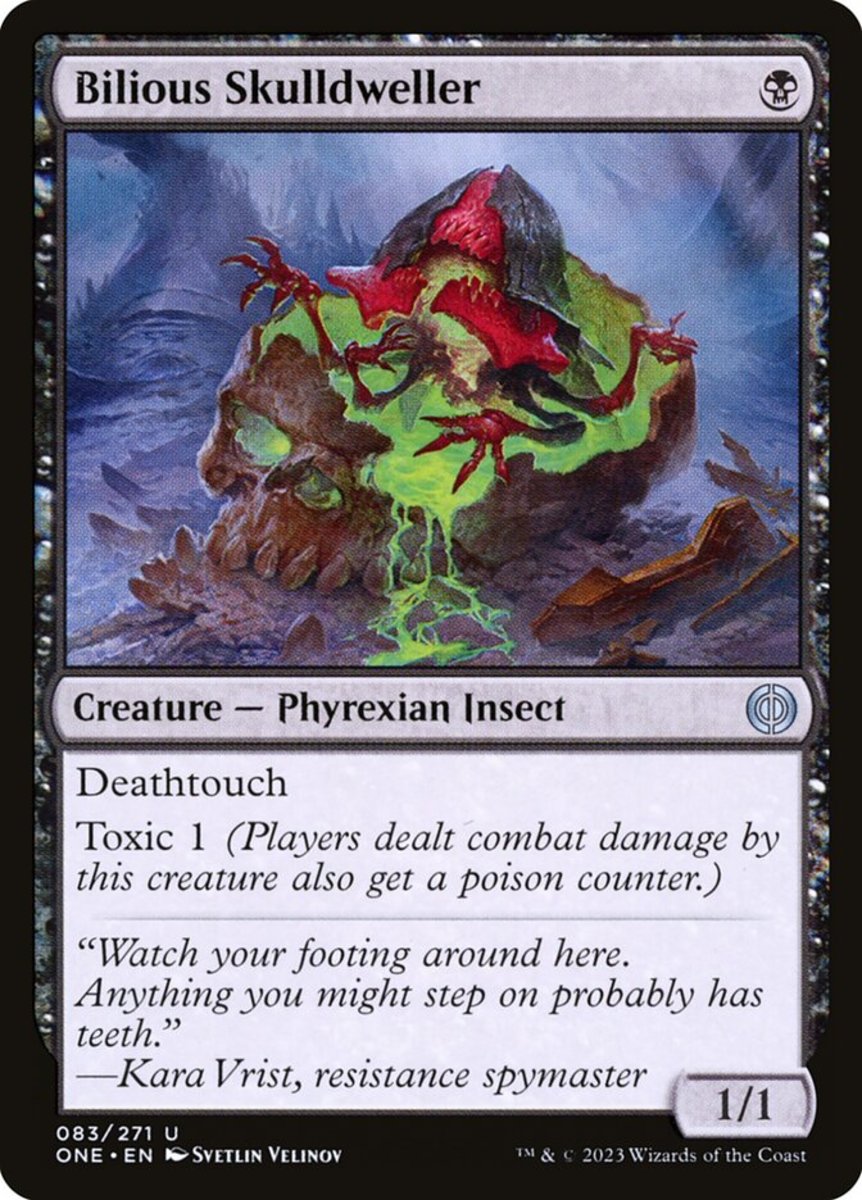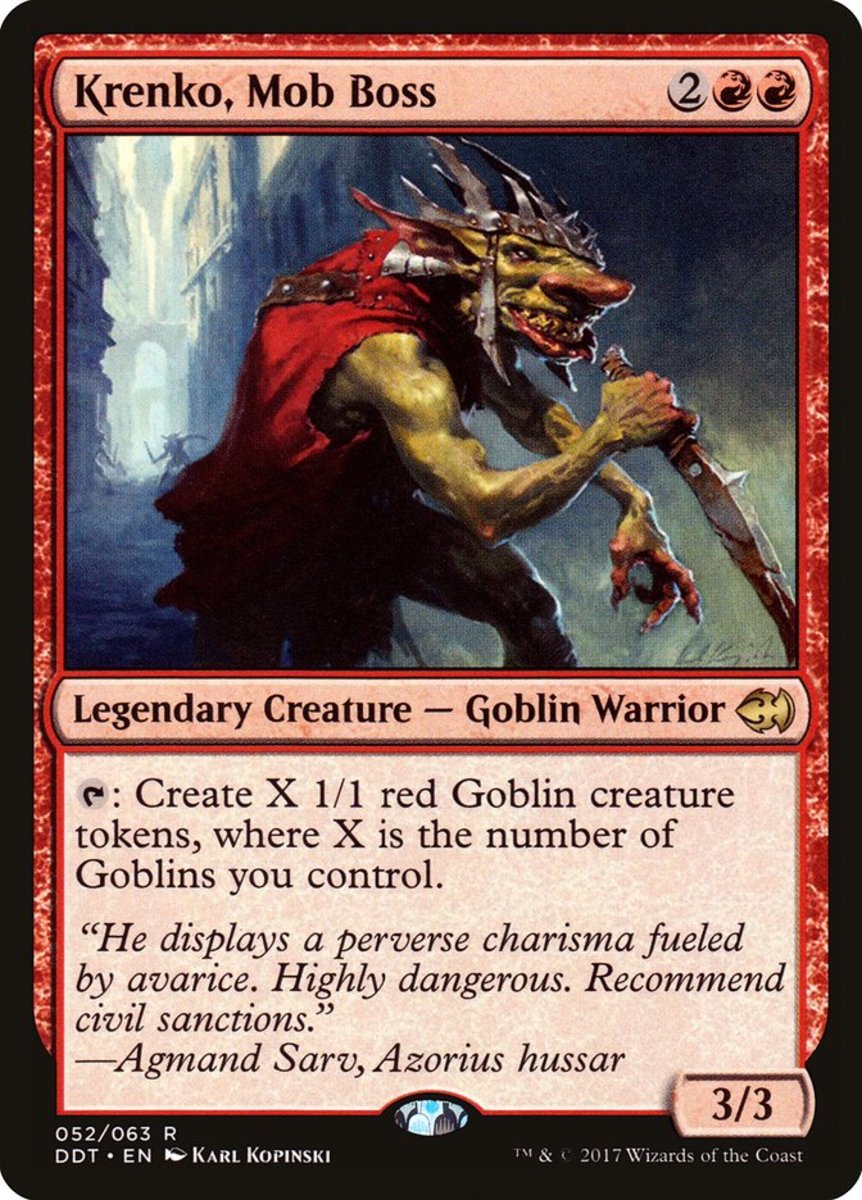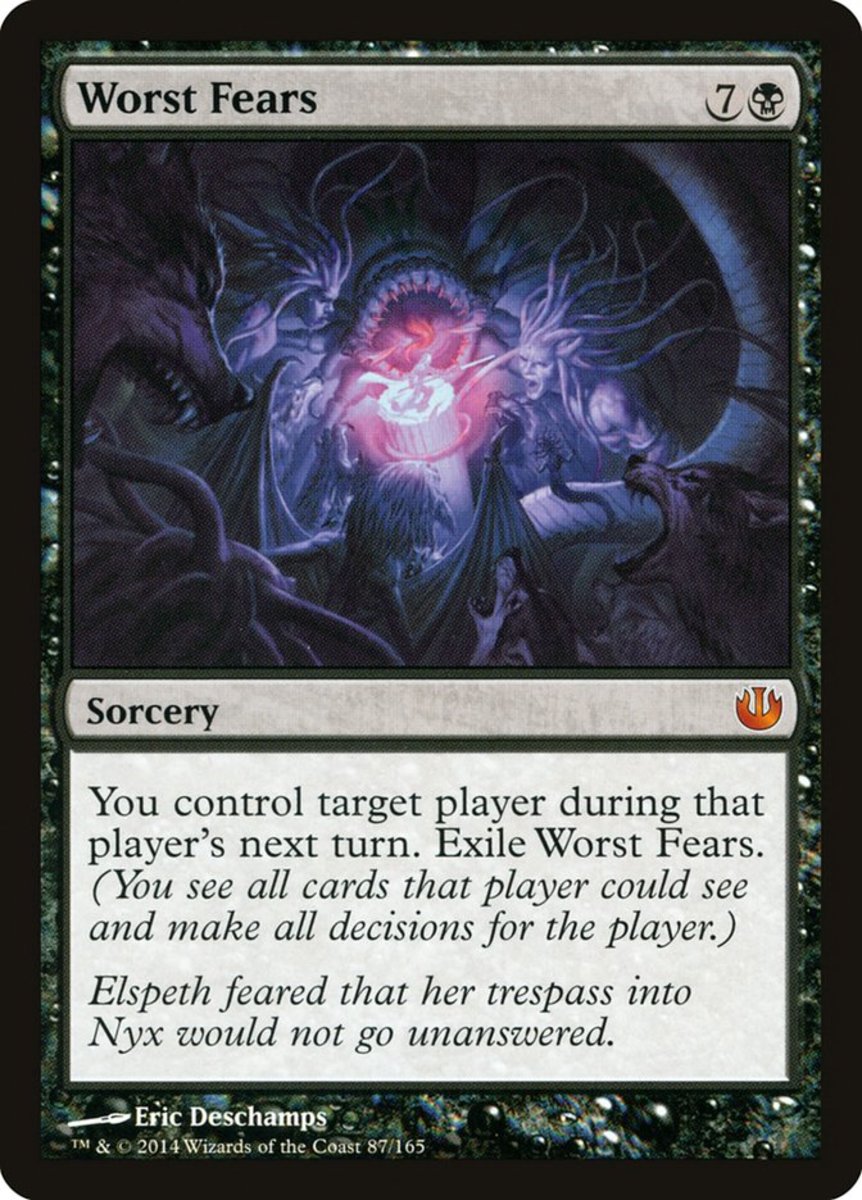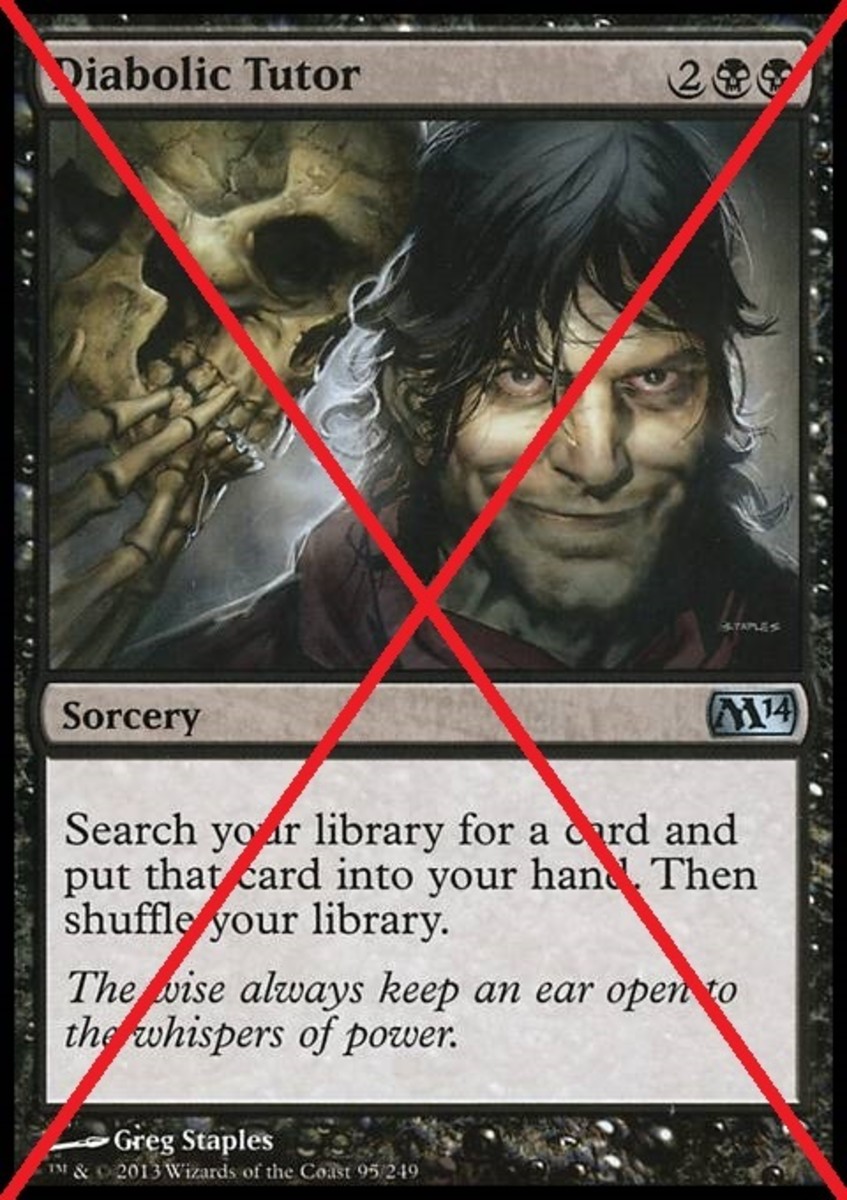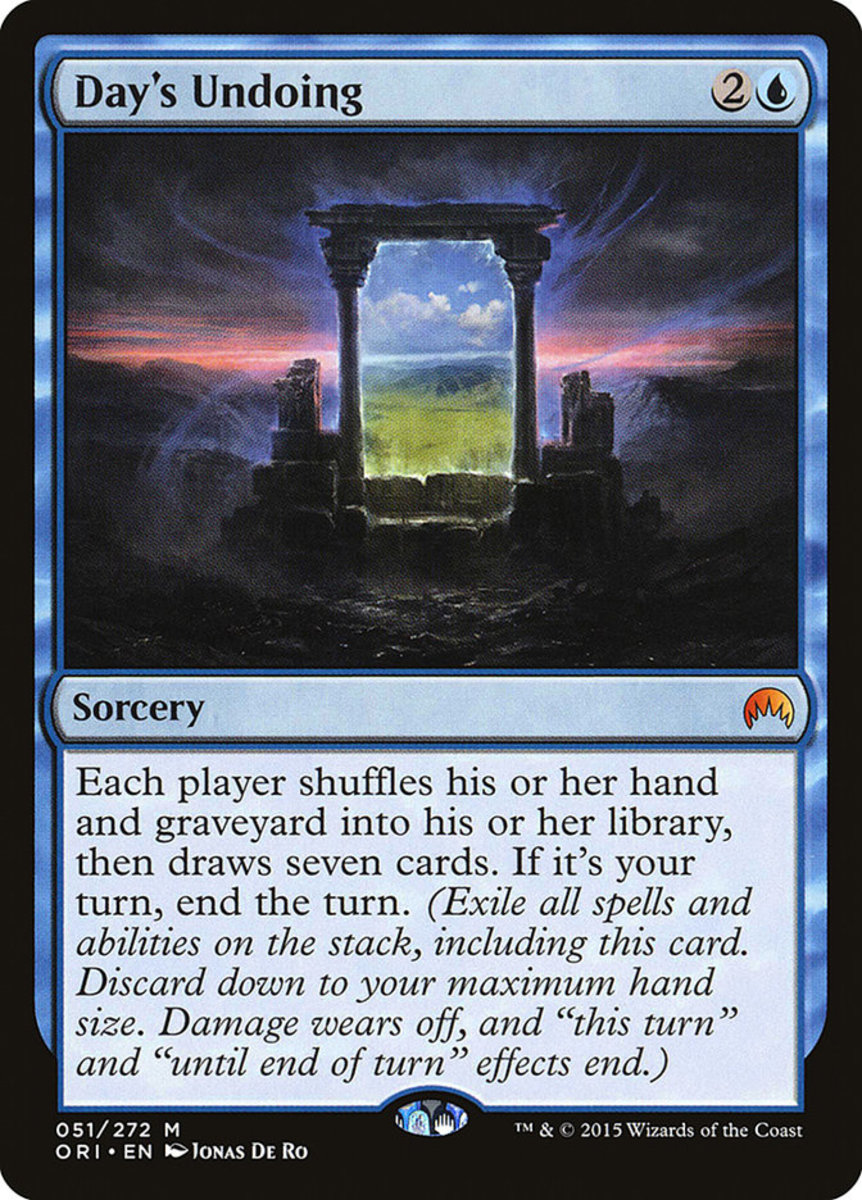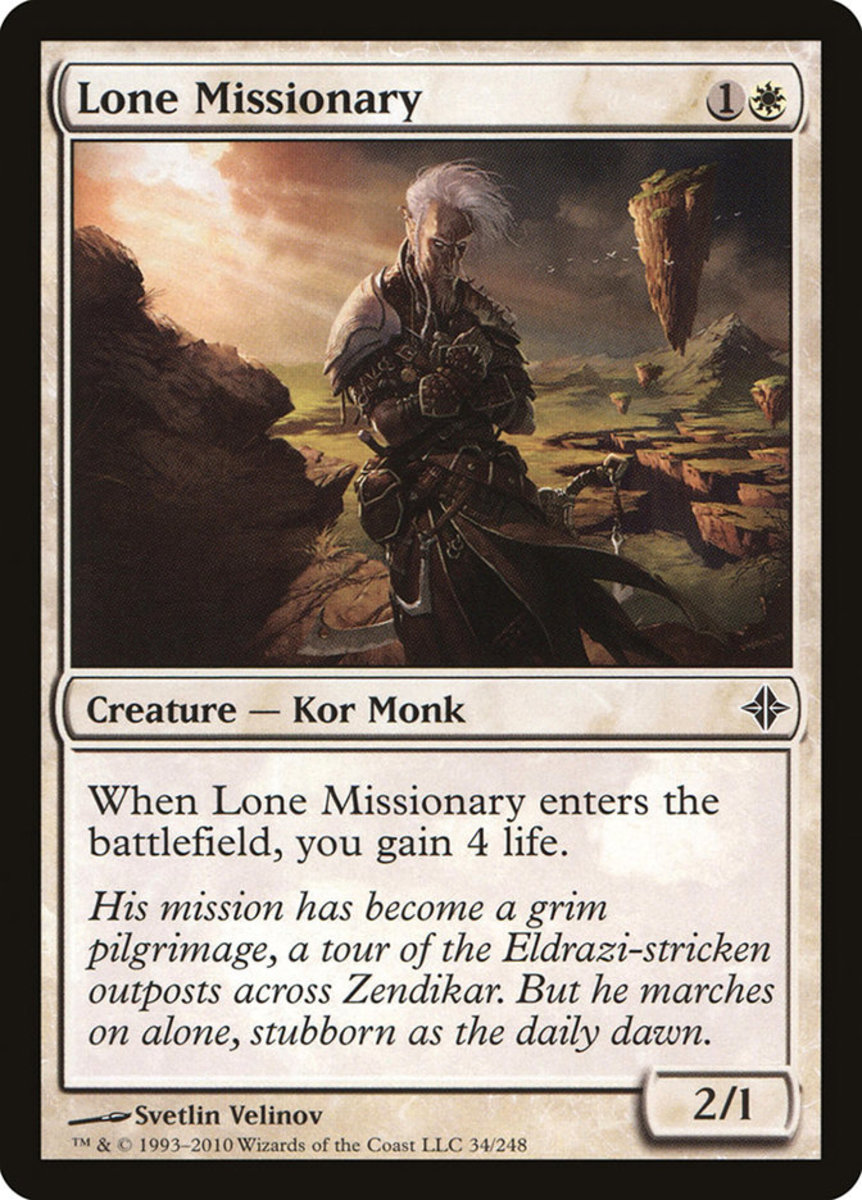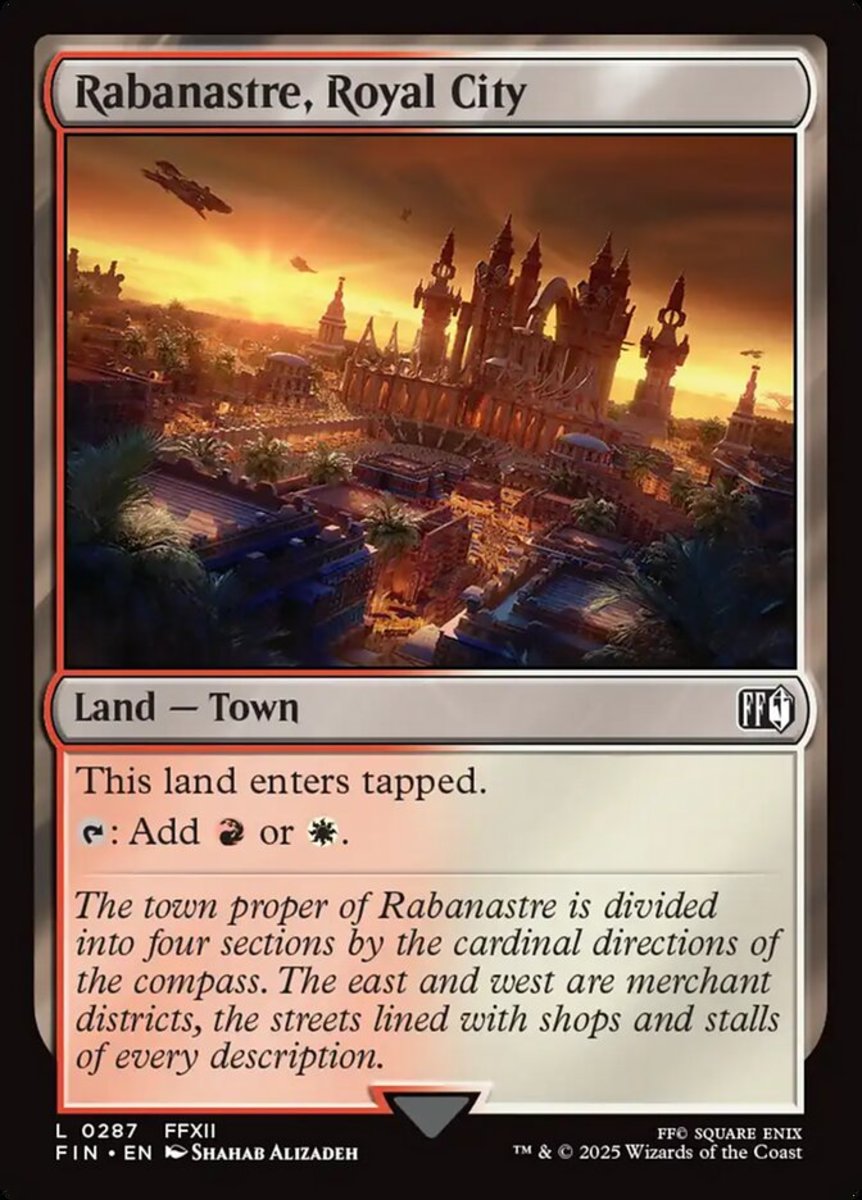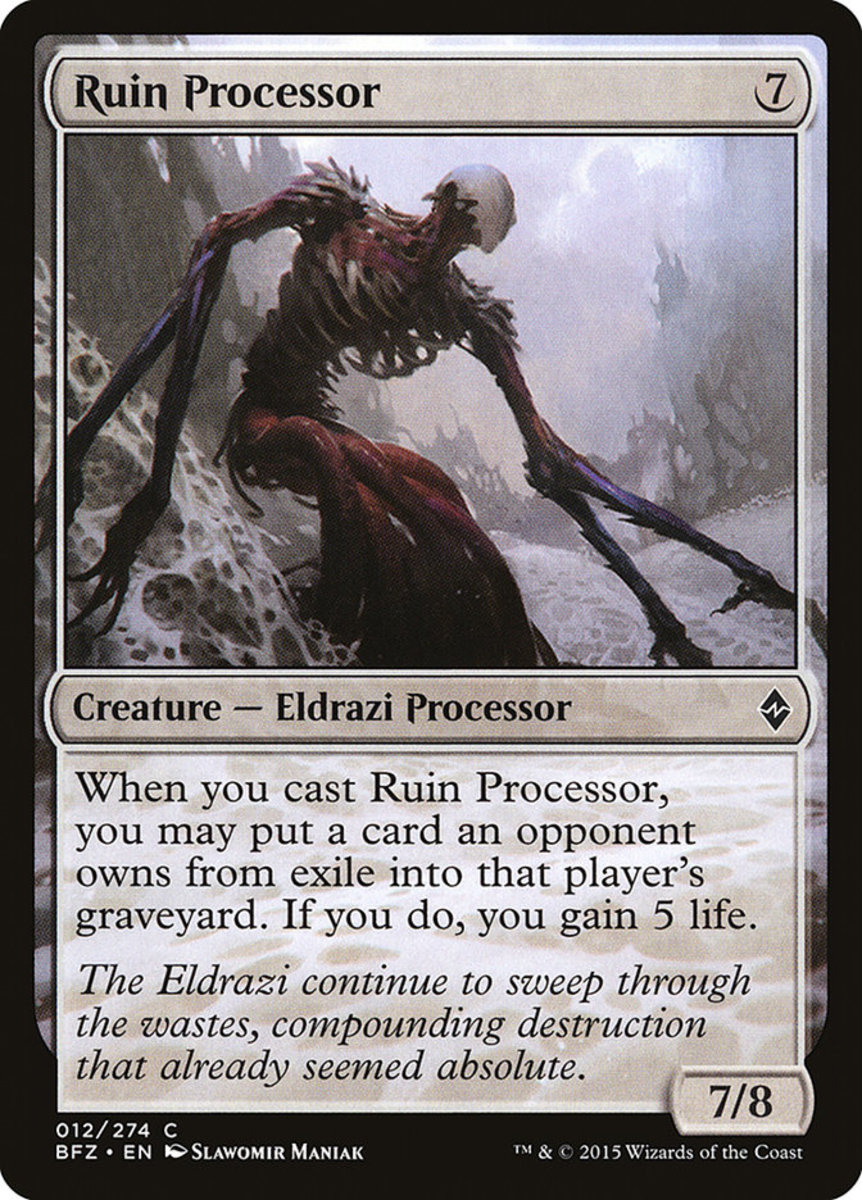- HubPages»
- Games, Toys, and Hobbies»
- Card Games»
- Collectible Card Games
Free-For-All Archetypes for Magic: The Gathering
A Different Kind of Format
Magic is unique among card games in that it was built to play multiplayer as easily as it does in duels. It lends itself to a variety of creative and interesting formats and is limited only by the imagination of the players. The downside is that people accustomed to playing in a Free-For-All environment tend to rip apart those who do not appreciate the differences in it that separate it from duels.
Note that this entire article is written from the perspective of a casual magic player (as even a cursory glance at my decklists would tell you). I also do not use most of the jargon that fogs discussions of the game up (aggro, philosophy of fire, ect.). This article is not constructed to teach you to eviscerate your friends in these games (there are plenty of articles online for that) but to help you understand why the format is different and the general psychology that goes with it.
The Three Archetypes
In my experience, there are three deck types in Free-For-All games. These terms are very broad, and have as much to do with the player as they do the deck. These Archetypes are:
- 800-pound Gorilla
- Rattlesnake
- Cute Puppy
You will probably be able to identify your friends' decks on this list quickly, but your own deck might be harder to peg down.
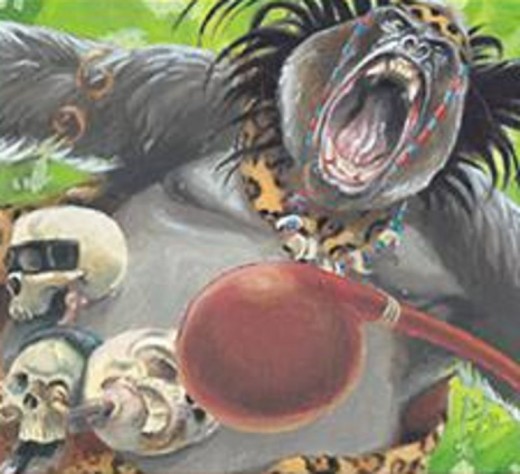
800-pound Gorilla
These are powerful, fast decks designed to cow opponents and put them on the defensive. They frequently involve strong mechanics like infect, suspend, and trample. This kind of deck can easily destroy all of your opponents if they fail to team up to kill you.
In my experience, this is far and away the most popular kind of deck to run. Forcing your opponent on the defense is an excellent way to win duels, as everything they do is reacting to your moves. They almost always seize and hold control of the game. In Free-For-All, however, there are risks to bullying your opponents.
The main problem with this deck is that the power is obvious. You have strong creatures and enchantments on the board, and they see the terror descending upon them. The result can be easily guessed: the other players do team up, pooling Naturalizes and Doom Blades to take apart the keystones of your battle line. When you are crippled, the other decks descend upon you and kill you before you get a chance to recover and dominate them again. Don't bemoan your fate, you knew the risks when you tried to force your way to the crown.
The other risk to this deck is that when it does work, people remember it. The second time it plays, you will be slapped down before you can get rolling. In order to get this deck to work, a little politics goes a long way. If you have some cards that can help out other players, you can win allies when you need them, even if the cards don't really help your deck, per se.
Gorillas usually lose to Rattlesnakes because Rattlesnakes arm themselves against powerful and fast moving threats, but Puppies are ill equipped to combat sustained attack from a Gorilla.
Examples: Green rush decks, White power decks, Black Zombies, Blue Mill deck
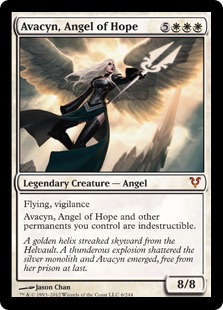
Avacyn's Host
Creatures
2 x Serra Avenger
1 x Angelic Skirmisher
1 x Avacyn, Angel of Hope
2 x Angelic Wall
2 x Guardian of the Gateless
3 x Emancipation Angel
3 x Angel of Jubilation
1 x Herald of War
1 x Angel of Serenity
2 x Serra Angel
2 x Seraph of the Dawn
1 x Sublime Archangel
Spells
1 x Entreat the Angels
2 x Cloudshift
2 x Oblivion Ring
2 x Defy Death
2 x Divine Reckoning
1 x Akroma's Memorial
2 x Bladed Bracers
Lands
25 x Plains
3 x Seraph Sancuary
This was a deck I designed when experimenting with Standard Angels, and it is a good example of 800-pound Gorilla. It ran off of powerful Creatures that developed after a devastating board sweep. By addressing multi-player concerns with cards like Akroma's Memorial, Divine Reckoning, and Guardian of the Gateless I could fight a war on more than one front. The trick was to survive to turn five, when my angels finally started showing up in force.
The deck could easily handle any one opponent, or any two. But when a third person jumped on the pile, the deck cracked under the strain. A quick elimination of one or two opponents was needed to give the survivor the attention they deserved. Failing that, the deck would sputter out and leave me helpless as they wore me down through my survivors.
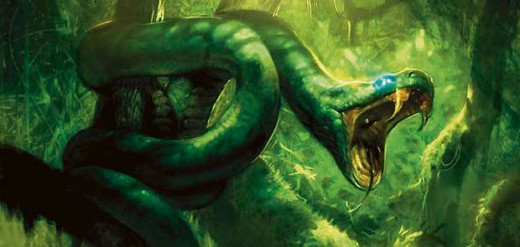
Rattlesnake
This particular deck plays best the second or third time people see it. The name comes from a term “Rattlesnake Factor” I have heard used to refer to specific cards. The idea is to make attacking your deck so horrific that only the desperate or ignorant would try. Instants like Doom Blade and Frost Breath are invaluable to this end. Deterring permanents like Righteous Cause, Sleeping Dragon or Circle of Fire help as well.
Oddly, people seldom blame a Rattlesnake deck for the board sweeps it uses to clear out threats. If used correctly, people actually see the player who attacked the Rattlesnake as the antagonist and the Rattlesnake as simply having defended itself.
The peril of this deck is that you do not have enough ammunition to deal with everything, and if you try you will be killed. It takes a bit of political savvy to keep your metaphorical gun holstered until you really need it. Abilities like Hexproof, Regeneration or Protection can also throw your strategy out of gear.
Rattlesnakes are at an advantage to destroy Gorillas because they are immediate and obvious threats but lose to Puppies because they have run out of steam by the time Puppies actually become dangerous.
Examples: Control Decks, Pyromancy, White Defensive Decks
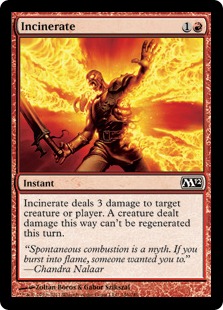
Chandra's Spellbook
Creatures
- 4 x Chandra's Phoenix
- 3 x Chandra's Spitfire
- 2 x Young Pyromancer
- 2 x Firewing Phoenix
- 2 x Guttersnipe
- 1 x Satyr Firedancer
Spells
- 1 x Wild Ricochet
- 2 x Electrickery
- 4 x Lightning Bolt
- 2 x Reverberate
- 2 x Incinerate
- 2 x Chandra's Outrage
- 2 x Flames of the Firebrand
- 2 x Blasphemous Act
- 2 x Thunderous Wrath
- 1 x Searing Blood
- 1 x Spire Barrage
- 1 x Pyromancer's Gauntlet
- 2 x Chandra, the Firebrand
- 1 x Chandra Nalaar
- 1 x Chandra Ablaze
- 1 x Chandra, Pyromaster
Lands
- 21 x Mountains
Although it evolved into an experimental deck to explore the uses of each of the versions of Chandra, this deck originally started as a burn damage deck. The object was to be able to keep the board clear when I needed it, but not to sacrifice its player-killing power. Chandra, the Firebrand copying a Spire Barrage or a Reverberate on a miracled Thunderous Wrath could end the game for a player.
Its disadvantage comes from the ability to eliminate only one to two players before they realize what is going on. As with most Rattlesnake decks, it needs to wait to pounce and try to get the players to attack each other instead of you. In fact, my opponents were so accustomed to this that they would glance at me whenever they did something with board-wide ramifications to see if I was going to interfere before finishing the move.
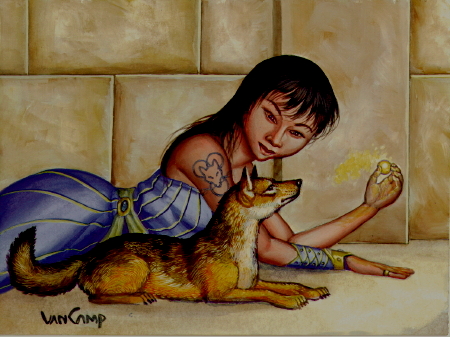
Cute Puppy
This deck type appears entirely harmless. It usually generates small creatures with no apparent synergy and at no rapid rate. Your opponents will usually be confused as to what you're actually trying to do. You might even be bribing your opponents with cards like Rites of Flourishing, Rainbow Vale, or other similar cards that benefit everyone. Hopefully by the time they figure out what you're up to, you've already got the game in the bag.
The risk here is that your deck might ACTUALLY be harmless. Opponents will shrug you off until you're the last other player, then kill you with unblockable or intimidate, or simply grind you into dust with superior creatures. If you're going to try to build this deck, you need some sort of winning gimmick. As with Gorilla, a Cute Puppy deck will be recognized after it wins and will promptly be put down on subsequent games. Mixing a touch of Rattlesnake philosophy can make attacking you just aggravating enough that they pick someone else just because they do not want to bother with you right at the moment.
Puppies usually win against Rattlesnakes because they simply have better targets for their limited resources, but lose to Gorillas as Gorillas can often attack the harmless Puppies without exposing themselves to counterattack.
Examples: Maze's End, Laboratory Maniac
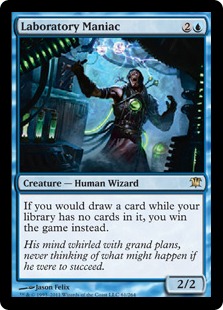
Mad Science
Creatures
- 1 x Mirror-Mad Phantasm
- 2 x Deranged Assistant
- 2 x Fog Bank
- 2 x Alchemist's Apprentice
- 2 x Stern Mentor
- 2 x Archaeomancer
- 4 x Laboratory Maniacs
Spells
- 1 x Cyclonic Rift
- 2 x Curse of the Bloody Tome
- 2 x Chronic Flooding
- 2 x Traumatize
- 3 x Visions of Beyond
- 1 x Psychic Spiral
- 1 x Increasing Confusion
- 2 x Dissipate
- 1 x Cancel
- 2 x Ætherize
- 1 x Sleep
- 1 x Jace, Memory Adept
- 2 x Staff of the Mind Magus
Lands
- 24 Islands
This deck is an excellent example of Cute Puppy at work. Mad Science is surprising when it works, hilarious when it doesn't. It even has a bit of a life vest in the form of Psychic Spiral and can flip the self-imposed milling back around at an opponent and remove them from the game while you have a fully restocked deck. However, if any opponent decides to pay focused attention to it, it buckles shamefully fast.
Graveyard removal cripples this deck badly, rendering the key flashback card, Increasing Confusion, useless as well as the Archaeomancer. On the whole, however, opponents ignore this deck in favor of attacking higher priority targets. They only start keeping an eye on it when most of the deck is lying in the discard, allowing the deck ample time to get into position to repel the inevitable attack.
Which are you?
Which is your Favorite Kind of Deck?
Play to Your Strengths
Just because your deck plays towards an archetype doesn't mean that you are confined to that play style. I've seen plenty of Gorillas pretending to be Puppies and Rattlesnakes that didn't realize they were really Gorillas (like my Exploding Vampires deck, but that is for another day...)
The point of identifying your archetype is to understand why players react to your plays like they do, and why you always keep a closer eye on that one friend of yours. When you understand the roles, you can have fun reversing them, or embrace your roles and laugh when the Puppy wins or cheer when Gorilla finally goes down. Even the defeated Gorilla can take some satisfaction in forcing the whole field to ally against him to bring him down. Meanwhile the Rattlesnake looks sinister in the corner and finally makes his move.
Remember, after all, that it is just a game.
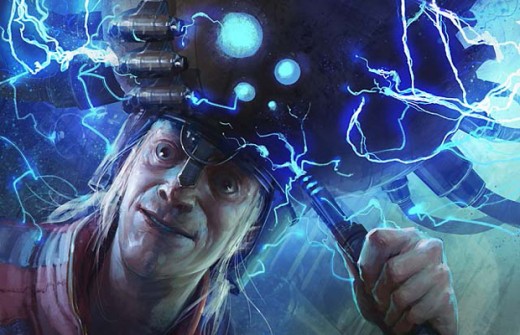
Next Time...
We will take a closer look at the political psychology of Free-For-All games.
Disclaimer
Unless otherwise specified, the pictures come from the Wizards of the Coast website and are their property. They are used here purely for illustrative purposes in relation to their game, Magic: The Gathering.
